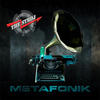About Grand Serenade
Fred Jacobowitz asked me to consider writing something he could play with his
wife Bonnie Thron. He noted that there are several couples in the area of
clarinetists married to cellists, so it seemed like a very good idea. So, this
piece is dedicated to Fred and Bonnie. There were originally three movements,
but after the premiere Bonnie and Fred asked me to add a finale.
Any of the four movements can stand alone in performance; the first and last are
especially well-suited for this.
About Ananda Sonata
Ananda-Eric Pritchard asked me to write a violin sonata for his recitals early
in 2008, and as I had none in my catalog, it sounded like a very good idea. One
of my early compositions was a sonata for violin and piano, written during my
first year of college (1973 at Eastman), but it was immature and derivative and
has not survived. This work, on the other hand, is fully mature and ready for
consumption.
I'm not by nature a programmatic composer, so the first movement is not intended
to have a literal title; however I've had a pretty tough time much of my life
and in some way, a good deal of my music cannot help but reflect some of this.
After I had written most of the first movement that it seemed right to call it
"Hard Times". The second movement is intended as a kind of mantra; quite a few
of my works are best heard with a repeated series of words mentally set to the
music, and this is no exception. Since Ananda is involved with Sufism, it was
most appropriate to use Allah as the mantra. And the last movement started off
in 12 but then I knocked off a note leading to 11 per measure, then decided to
continue the prime number meter idea and ended up with most meters in 5, 7, 11,
and 13. In addition there are some fancy compound rhythms and some tricky
playing, especially for the piano. The technical requirements for the first
movement are moderate and the middle is easy, but the last movement does require
real proficiency. If this results in only the first or second movements, or
both, being performed at a future concert, this is perfectly acceptable.
About Clarinet Sextet
I have written two chamber works previous to this including clarinet;
Quartet for a New Beginning, for clarinet, violin, cello and piano, and
Grand Serenade. These combinations worked well for the kind of music that I
write. While most of my chamber music includes piano, sometimes I like to
get away from it for a bit. At first I intended to write a clarinet quintet
for the usual clarinet and string quartet, but from the first few measures
the music insisted on an extra cello. So-I went with the flow.
For no particular reason, the tempo markings are all taken from food. Except
for the first movement's "Adagio con queso", none give an idea as to tempo,
requiring musicians to refer to the metronome markings, which I much prefer.



